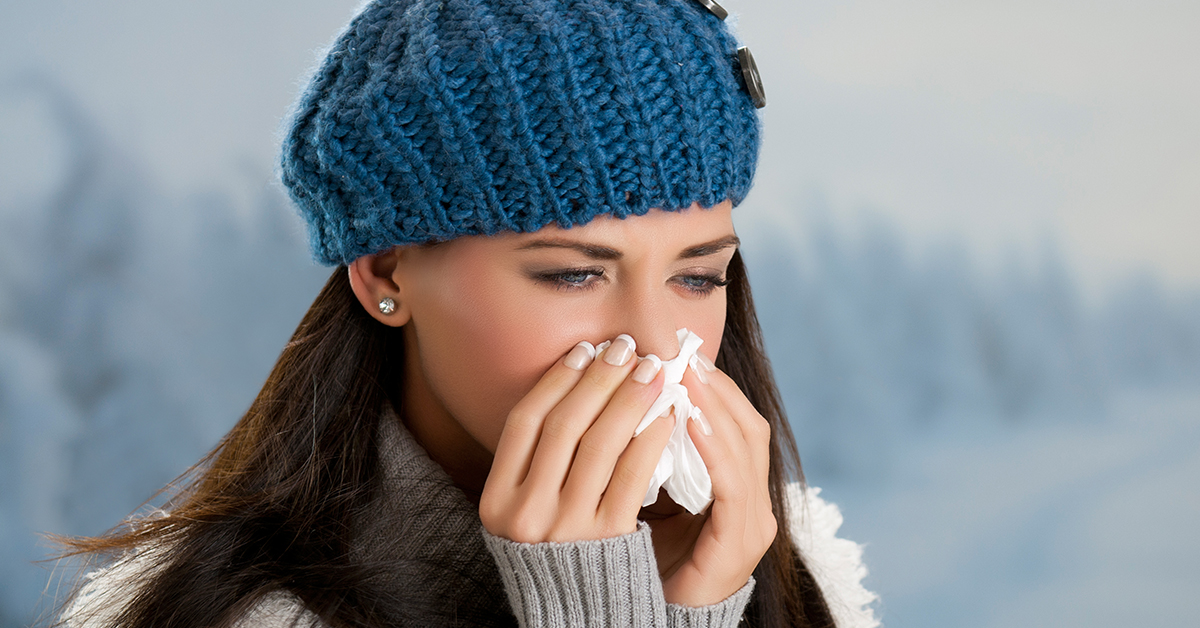
What are the Symptoms of Winter Allergies?
Winter allergy symptoms are usually similar to other seasonal allergies, but can also be similar to a common cold. The first step in identifying if you have a cold vs. having winter allergies is understanding the differences. Colds are a result of a viral infection that you pick up from someone else. Allergies are caused by your body's immune system and its overreaction to allergens.
Symptoms of allergies include the following:
- Stuffy or runny nose
- Sneezing
- Itchy ears, eyes, or throat
- Difficulty breathing, coughing
Severe allergies can also cause wheezing, chest tightness, or severe breathing difficulties. These could be a sign of asthma or something else that's more serious. Seek medical attention if you experience severe symptoms.
What Causes Winter Allergies?
There's much less pollen and other outdoor allergens, so what's the beef? Why are winter allergies even a thing? It's usually because of indoor allergens, and because it's winter, you're spending much more time indoors where you have more exposure to these indoor allergens.
Common winter indoor allergens include:
- Dust mites
- Pet dander and fur
- Dust
- Cockroach and other insect droppings
- Mold
Short Term Treatment Methods
If you've decided that you want to start treating your symptoms, consider these options:
- Over-the-counter allergy medications, such as antihistamines or acetaminophen, which will help to relieve symptoms.
- Nasal sprays, including prescription steroid nasal sprays, or over-the-counter nasal sprays will aid in treating runny noses.
- Allergy shots, which are typically used to treat severe or chronic allergies. Allergy shots help your body develop immunity to allergens by exposing you to very small amounts of different allergens.
Year-Round Treatment Methods
Short-term treatment methods are great at reducing the symptoms of allergies, but if you can reduce or eliminate the cause of the allergies altogether, that would be even better. Try the following year-round prevention methods to aid in reducing your winter allergies.
- Wash your clothes, bedding, and upholstery covered regularly to limit the amount of dust mites and pet dander.
- Regularly vacuum and clean your home.
- Invest in high quality filters for your home's air conditioner or furnace.
- Remove old carpeting and replace with tile, hardwood, or vinyl.
- Maintain humidity levels in your home between 40% and 60% through the use of a humidifier in the winter months and a dehumidifier in the summer months.
- Have a pest control company inspect your home for insects that can contribute to seasonal allergies. Follow their advice to seal up any areas where insects may be getting into your home.

